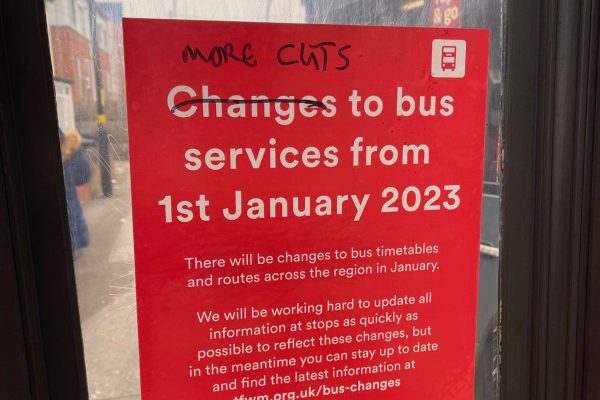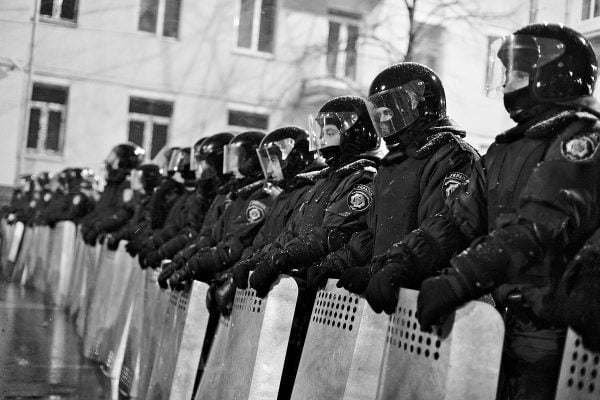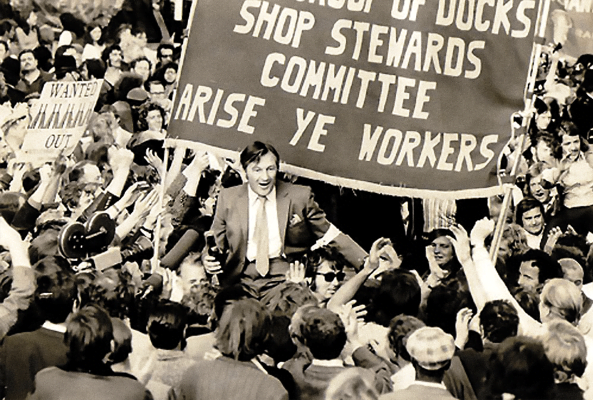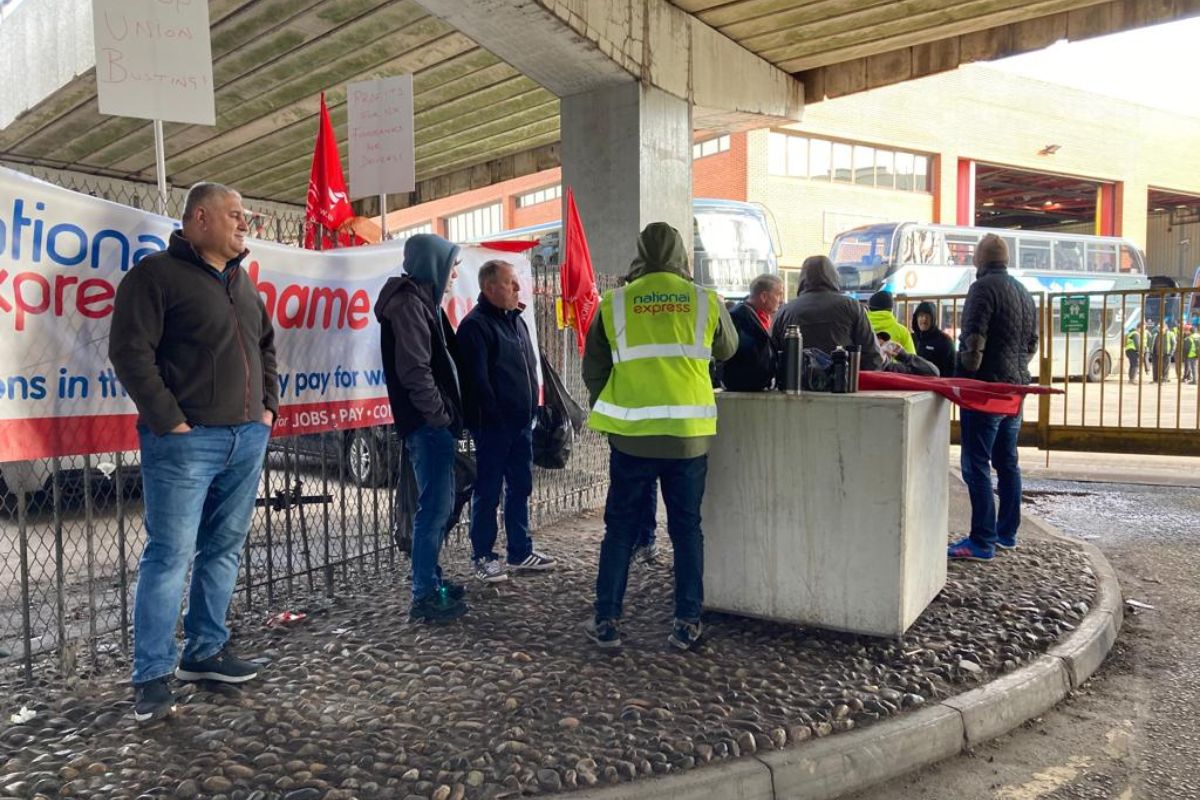National Express bus drivers and engineers in the West Midlands, organised in Unite the Union, have won an astonishing 16.2% pay deal, after waging an all-out strike in defiance of management intimidation and union busting.
Superficially, the deal that these workers rejected seemed very good. The initial offer of the employers was for a 14% pay rise, which appears well above inflation.
When examined more closely, however, it became apparent that the deal “had more strings attached to it than a grand piano”, in the words of one Unite rep.
Pay and conditions

We spoke to workers at the pickets in south Birmingham, who were keen to discuss why they felt this deal wasn’t enough. Workers spoke, in particular, about the gruelling schedules they were expected to work.
“We’re short staffed by 40 drivers in this depot alone,” said one striker. “We get asked to come in every single day to cover. We’re pulling 10 hour long shifts, skipping breaks when we’re running late.”
“All I sit and think in my cab is: Christ, I’m in charge of all seventy lives on my bus, it’s my responsibility to get them home,” the same worker continued.
“Being on barely above minimum wage for two years might be fine for a school leaver,” said another National Express worker, speaking about the unfair tiered pay system, “but I have rent, food and bills to pay for. I need to feed my family.”
“This job doesn’t even attract young people anyway. The conditions are horrible,” they concluded.
Yardley Wood @nxwestmidlands garage in full spirits. Our members are hoping that today brings some positive talks with the company. pic.twitter.com/jRTeAID3B4
— Unite West Midlands (@UniteWestMids) March 23, 2023
Union busting

Wasting no time, National Express bosses allegedly repeatedly interfered with Unite’s efforts to ballot workers on their 14.4% pay offer. Managers even went so far as to browbeat individual workers, in order to scare them into not striking.
The bosses didn’t count on the fighting spirit of the bus workers, however. Huge picket lines sprawled through the West Midlands, as the strikers went into action.
In fact, so determined was this mood that some strikers turned to the old tradition of hard pickets, in order to prevent scab buses from leaving the depot.
Needless to say, this militant attitude did not go down well with the employer. In an effort to break up hard pickets, the bosses called in the police.
This highlights the real class role of both the police force themselves, and any anti-strike laws more generally: as a weapon in the hands of the ruling class, to strengthen the hand of the employers in times of sharpening class struggle.
The strikers weren’t to be beaten so easily, however. Instead, they kept up their fight. If anything, this shameful behaviour by the bosses only hardened the mood.
“Whatever respect management had from me yesterday, all left this morning,” stated one bus worker, speaking to Socialist Appeal activists.
Lies and slander
As well as fighting off management’s union-busting efforts, the bus workers have also had to contend with the disgraceful slanders of the press.
Local and national news published dozens of headlines about the “thoughtless” drivers causing disruption to the lives of passengers, attacking the striking workers in the most brazen manner.
As might be expected from our ‘free and impartial’ press, not a word of criticism was written about the £2.3 million salary of the National Express CEO; the enormous profits the company had made; or the 17% inflation in food prices that has forced the strikers into taking action.
As with smear campaigns seen recently against other workers, this clearly shows which side the capitalist media will always take when it comes to strikes and industrial action – and it’s not ours.
Again, however, despite all these efforts to tilt things in the bosses’ favour, the strikers stood firm. This determination – the refusal to budge no matter what was thrown at them – in the end proved decisive.
Strike to win

This is an incredible outcome. These workers not only committed to indefinite action, but also adopted tactics that are technically illegal. As a result, they won their demands, setting an example for the rest of the labour movement.
As was seen with the case of the ‘Pentonville Five’ in the 1970s, the bosses’ laws, used to attack the working class, can be defied.
We shouldn’t rely on the capitalist courts to beat back these repressive laws, but instead trust in the strength of our own forces – of unity, organisation, and militancy – as the National Express workers have. This is the way to win!
Workers’ control
Ultimately, as long as transport networks are privately-owned and run for profit, the race to the bottom will continue.
Routes will be staffed and operated not on the basis of need, but to line the bosses’ pockets. Wages and conditions will be continually attacked and eroded. Further struggles will break out down the line.
The trade union movement must therefore fight to renationalise public transport, without any compensation to the fat cats, with buses, trains, and coaches run on the basis of a rational plan, decided democratically by workers themselves.
A socialist transport system would be the pride of our communities – and union-busters like National Express would be a thing of the past.






